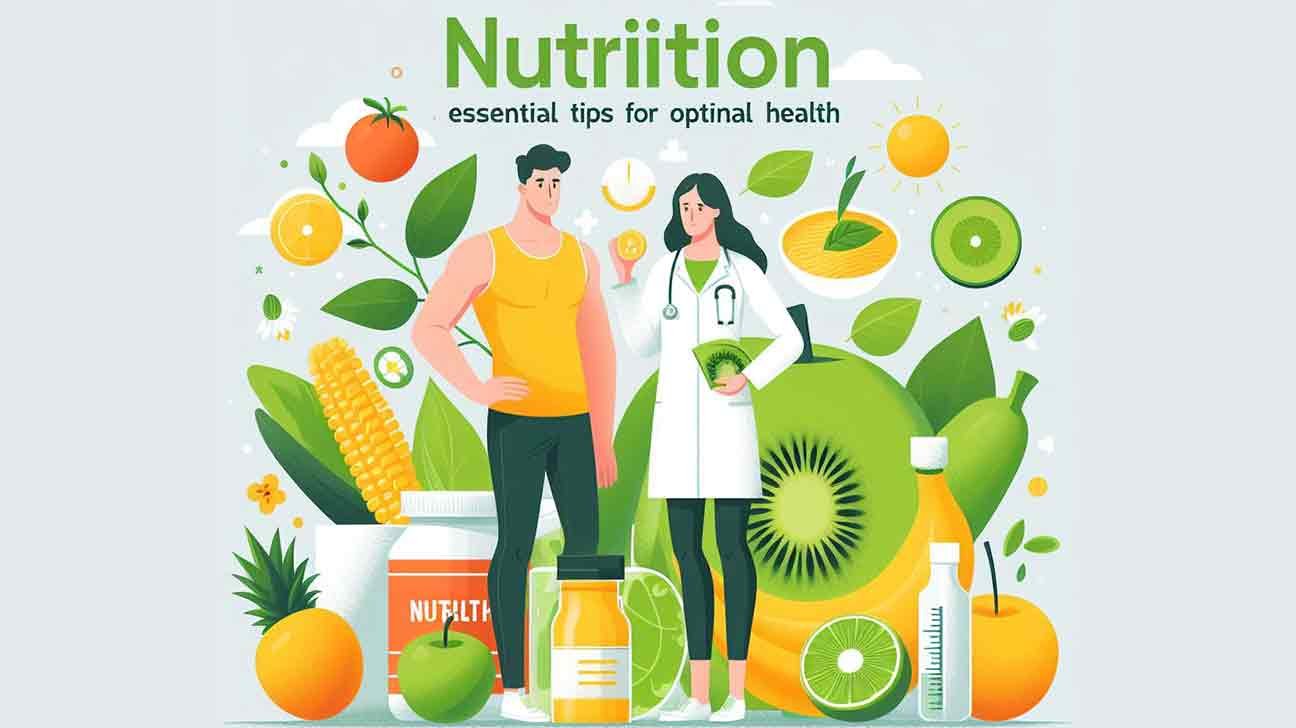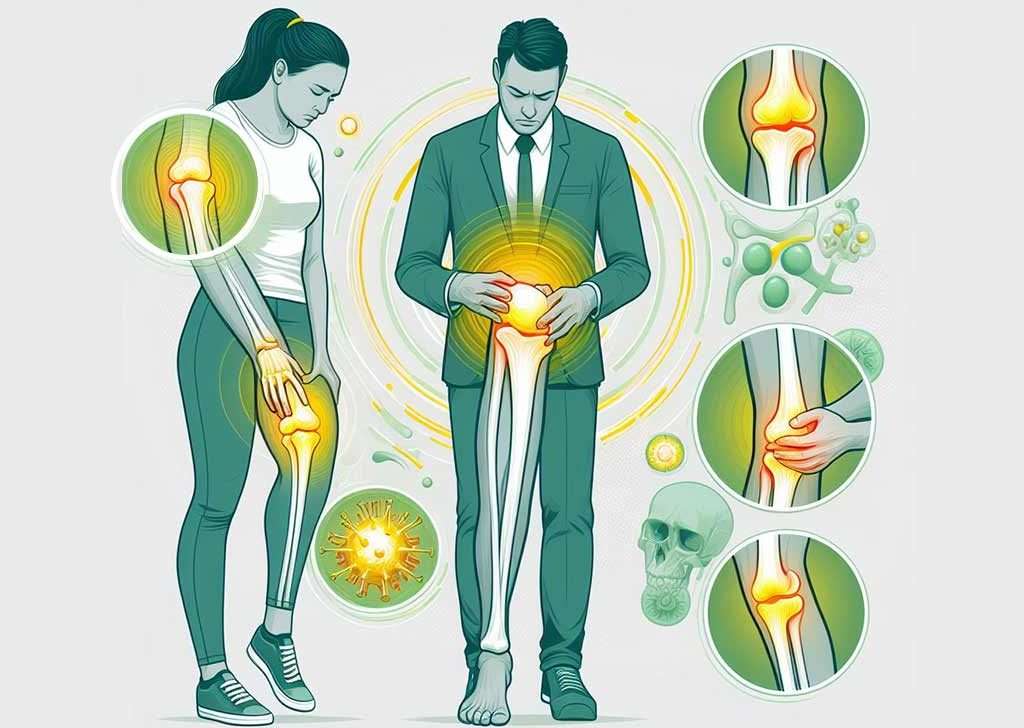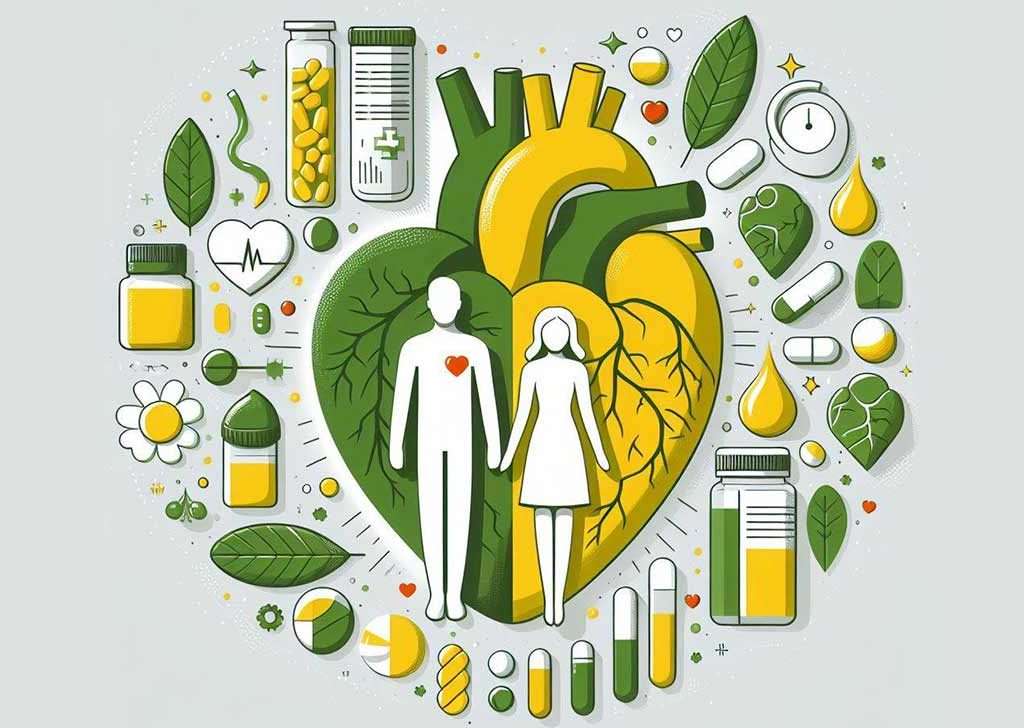Popeyes Nutrition offers a range of tasty and satisfying meals, but many of its menu items are high in calories, fat, and sodium. By being mindful of your choices and opting for healthier options when possible, you can enjoy Popeyes as part of a balanced diet. Always consider your personal nutritional needs and health goals when selecting fast-food meals.
Table of Contents
- Introduction to Popeyes Louisiana Kitchen
- Overview of Popeyes Menu Categories
- Nutritional Analysis of Popeyes Signature Chicken
- Popeyes Chicken Sandwich: What’s in It?
- Side Dishes: Satisfying but Nutrient-Dense
- Popeyes Seafood: A Nutritional Comparison
- Health Impacts of Consuming Popeyes Meals
- How Popeyes Compares to Other Fast Food Chains
- Understanding Caloric Needs: How Popeyes Fits In
- Tips for Making Healthier Choices at Popeyes
- Popeyes and Dietary Restrictions: Are There Options?
- Conclusion: Is Popeyes Part of a Balanced Diet?
1. Introduction to Popeyes Louisiana Kitchen
Popeyes Louisiana Kitchen, commonly referred to as simply “Popeyes,” is an iconic fast food chain known for its flavorful fried chicken and distinct Louisiana-inspired menu items. Since its founding in New Orleans in 1972, Popeyes has expanded globally, earning a reputation for its spicy, bold flavors and signature fried chicken. However, as with many fast food chains, consumers often wonder how Popeyes fits into a balanced diet and what the nutritional impact of their menu choices may be.
In this detailed article, we’ll explore the nutrition of Popeyes’ most popular items, breaking down their nutritional content to help you make informed choices. We’ll examine key menu items such as Popeyes Signature Chicken, the popular Chicken Sandwich, and various sides, as well as their impact on overall health and well-being.
2. Overview of Popeyes Menu Categories
Popeyes offers a wide variety of items that fall into several distinct categories:
- Fried Chicken: Including the signature spicy and mild fried chicken in various cuts (breast, thigh, wing, drumstick).
- Sandwiches and Wraps: Including the fan-favorite Chicken Sandwich, a staple that has become a viral sensation.
- Seafood: A variety of fried and grilled seafood options, such as shrimp and fish.
- Sides: Classic Southern sides like mashed potatoes with gravy, red beans and rice, biscuits, and coleslaw.
- Beverages and Desserts: Sweet tea, lemonade, soft drinks, and indulgent desserts such as apple pie.
This wide array of choices provides something for everyone, but it also means varying nutritional profiles that range from calorie-heavy and indulgent to more balanced options.
3. Nutritional Analysis of Popeyes Signature Chicken
Popeyes Signature Chicken is the backbone of the brand. The chicken is available in both mild and spicy variants, and customers can order individual pieces, tenders, or larger family meals. While undeniably delicious, Popeyes fried chicken is high in calories, fat, and sodium, which are important factors to consider if you’re tracking your daily intake.
Nutritional Breakdown (per piece of chicken):
- Calories: 380-500 kcal, depending on the cut (breast, thigh, wing, etc.)
- Protein: 20-35 grams
- Total Fat: 22-35 grams
- Saturated Fat: 5-8 grams
- Carbohydrates: 10-15 grams
- Sodium: 800-1200 mg
While chicken is a great source of protein, the fried preparation method used at Popeyes significantly increases the fat and sodium content. The calorie count per serving is also relatively high, making this a more indulgent meal option rather than an everyday staple for those looking to maintain a balanced diet.
4. Popeyes Chicken Sandwich: What’s in It?
The Popeyes Chicken Sandwich made waves when it first launched, captivating fans with its crispy, juicy chicken fillet, tangy pickles, and buttery brioche bun. It quickly became a cultural phenomenon, but many consumers are curious about its nutritional value.
Nutritional Breakdown (per sandwich):
- Calories: 700 kcal
- Protein: 28 grams
- Total Fat: 40 grams
- Saturated Fat: 9 grams
- Carbohydrates: 49 grams
- Sugar: 7 grams
- Sodium: 1443 mg
With 700 calories per sandwich, it’s clear that the Popeyes Chicken Sandwich is not a low-calorie option. The sandwich also contains high levels of sodium and fat, including saturated fat. This makes it a decadent meal choice that should be enjoyed in moderation, especially for those mindful of heart health and cholesterol levels.
5. Nutritional Analysis of Popeyes Signature Chicken
Popeyes Signature Chicken is arguably the flagship item of the chain, renowned for its crispy exterior and juicy interior achieved through a unique breading process and a proprietary blend of seasonings. Available in various cuts—breast, thigh, drumstick, and wing—the signature chicken caters to different taste preferences.
Nutritional Breakdown (per piece):
| Nutrient | Grilled | Fried (Original Recipe) |
|---|---|---|
| Calories | 210 kcal | 380 kcal |
| Protein | 30 grams | 20 grams |
| Total Fat | 9 grams | 22 grams |
| Saturated Fat | 2 grams | 5 grams |
| Carbohydrates | 0 grams | 10 grams |
| Fiber | 0 grams | 1 gram |
| Sodium | 500 mg | 800 mg |
Note: Nutritional values are approximate and can vary based on specific preparation methods and portion sizes.
Health Implications
- Fried vs. Grilled: The fried signature chicken is significantly higher in calories and fat compared to its grilled counterpart. While the fried version is richer in flavor and texture, it also contributes more to daily caloric and fat intake, which can be a concern for those monitoring their weight or heart health.
- Protein Content: Both grilled and fried options provide substantial protein, essential for muscle maintenance and overall bodily functions. However, the fried version offers less protein per calorie, making the grilled option a more efficient choice for those prioritizing protein intake.
- Sodium Levels: Both versions are relatively high in sodium, with the fried chicken containing more. High sodium intake is linked to elevated blood pressure and increased risk of cardiovascular diseases, making moderation important.
7. Side Dishes: Satisfying but Nutrient-Dense
Popeyes’ side dishes are integral to the dining experience, offering a variety of flavors and textures that complement the main dishes. While these sides add to the overall satisfaction of the meal, they also contribute significantly to the nutritional profile, both positively and negatively.
Popular Side Dishes and Their Nutritional Profiles
Biscuits
| Nutrient | Amount per Biscuit |
|---|---|
| Calories | 200 kcal |
| Total Fat | 12 grams |
| Saturated Fat | 7 grams |
| Carbohydrates | 22 grams |
| Fiber | 1 gram |
| Sugar | 3 grams |
| Sodium | 450 mg |
Health Implications: Biscuits are high in saturated fat and calories, contributing to increased cholesterol levels and caloric intake. However, they provide a source of carbohydrates for energy.
Red Beans and Rice (Regular)
| Nutrient | Amount per Serving |
|---|---|
| Calories | 230 kcal |
| Total Fat | 6 grams |
| Saturated Fat | 2 grams |
| Carbohydrates | 32 grams |
| Fiber | 5 grams |
| Sugar | 2 grams |
| Sodium | 740 mg |
Health Implications: Red beans and rice offer a more balanced profile with good fiber content and plant-based protein. However, the high sodium content remains a concern for those monitoring their salt intake.
Mashed Potatoes with Gravy (Regular)
| Nutrient | Amount per Serving |
|---|---|
| Calories | 110 kcal |
| Total Fat | 4 grams |
| Saturated Fat | 1.5 grams |
| Carbohydrates | 17 grams |
| Fiber | 1 gram |
| Sugar | 2 grams |
| Sodium | 530 mg |
Health Implications: Mashed potatoes are lower in calories compared to other sides but still contribute a significant amount of sodium. They provide carbohydrates but lack substantial protein or fiber.
Mac and Cheese (Regular)
| Nutrient | Amount per Serving |
|---|---|
| Calories | 280 kcal |
| Total Fat | 16 grams |
| Saturated Fat | 10 grams |
| Carbohydrates | 22 grams |
| Fiber | 1 gram |
| Sugar | 3 grams |
| Sodium | 930 mg |
Health Implications: Mac and cheese is rich in saturated fats and sodium, contributing to increased cholesterol and blood pressure levels. It provides carbohydrates and some protein but lacks significant fiber.
Green Beans (Regular)
| Nutrient | Amount per Serving |
|---|---|
| Calories | 70 kcal |
| Total Fat | 3 grams |
| Saturated Fat | 1 gram |
| Carbohydrates | 8 grams |
| Fiber | 4 grams |
| Sugar | 2 grams |
| Sodium | 400 mg |
Health Implications: Green beans are a relatively healthier side option, offering fiber and lower calories. However, the sodium content still poses concerns for those on restricted salt diets.
Overall Assessment
While Popeyes’ side dishes add variety and flavor to the meal, many of them are high in saturated fats and sodium. Opting for sides like green beans can help mitigate some health risks, but moderation is key. Combining these sides with grilled proteins rather than fried can further balance the meal’s nutritional profile.
6. Popeyes Seafood: A Nutritional Comparison
In addition to its renowned fried chicken, Popeyes offers a selection of seafood options, providing alternatives for those seeking different flavors or protein sources. Understanding the nutritional content of these items is essential for making informed dietary choices.
Popular Seafood Items and Their Nutritional Profiles
Fried Shrimp (8-piece serving)
| Nutrient | Amount per Serving |
|---|---|
| Calories | 300 kcal |
| Protein | 15 grams |
| Total Fat | 14 grams |
| Saturated Fat | 2 grams |
| Carbohydrates | 24 grams |
| Fiber | 1 gram |
| Sugar | 2 grams |
| Sodium | 1,100 mg |
Health Implications: Fried shrimp provide a good source of protein but are high in fat and sodium. The frying process adds unhealthy fats, making it less suitable for regular consumption.
Cajun Fish (Per Fillet)
| Nutrient | Amount per Fillet |
|---|---|
| Calories | 380 kcal |
| Protein | 18 grams |
| Total Fat | 25 grams |
| Saturated Fat | 3 grams |
| Carbohydrates | 24 grams |
| Fiber | 0 grams |
| Sugar | 0 grams |
| Sodium | 1,050 mg |
Health Implications: The Cajun Fish fillet is rich in protein but also high in fat and sodium. While fish can be a healthy protein source, the preparation method at Popeyes adds significant fat and sodium, potentially offsetting some of the health benefits.
Blackened Shrimp Po’ Boy
| Nutrient | Amount per Serving |
|---|---|
| Calories | 500 kcal |
| Protein | 20 grams |
| Total Fat | 30 grams |
| Saturated Fat | 5 grams |
| Carbohydrates | 35 grams |
| Fiber | 2 grams |
| Sugar | 3 grams |
| Sodium | 1,200 mg |
Health Implications: This sandwich offers a substantial amount of protein but comes with high levels of fat and sodium. The breaded and fried shrimp contribute to the increased caloric and fat content, making it a less healthy option.
Comparison with Grilled Seafood Options
While Popeyes primarily focuses on fried and breaded seafood items, some locations may offer grilled options. Grilled seafood typically contains fewer calories and less fat compared to their fried counterparts. For instance, a grilled shrimp option would have:
| Nutrient | Amount per Serving |
|---|---|
| Calories | 200 kcal |
| Protein | 25 grams |
| Total Fat | 5 grams |
| Saturated Fat | 1 gram |
| Carbohydrates | 10 grams |
| Fiber | 0 grams |
| Sugar | 0 grams |
| Sodium | 600 mg |
Health Implications: Grilled seafood options are leaner, providing higher protein with less fat and sodium, making them a healthier choice compared to fried options.

Nutrition is the study of food and its impact on the body’s health and growth through the use of nutrients. These substances found in food aid in growth, reproduction, and overall survival by providing energy and building blocks for the body.
Proteins are crucial for tissue repair, oxygen transportation, digestion, and hormone regulation. Understanding the basics of nutrition, including calories, protein, fat, carbohydrates, and vitamins, is essential to comprehend how food affects our bodies and overall well-being. Good nutrition is vital for optimal health, growth, and development, leading to improved immune systems, better learning abilities, and a lower risk of diseases like diabetes and heart conditions.
By making informed and healthy food choices, individuals can nurture their bodies and promote long-lasting wellness.
The Importance Of Nutrition
Nutrition plays a vital role in supporting the body’s health and growth. It provides essential nutrients for energy, tissue repair, and hormone regulation. Understanding the basics of nutrition, including calories, protein, and vitamins, can contribute to overall well-being and disease prevention.
Healthy eating choices are related to improved immunity, better learning abilities, and longevity.
Nutrition plays a vital role in maintaining overall health and well-being. It is the process by which our body obtains the necessary nutrients from the food we consume to support various functions and processes. Adequate nutrition is essential for growth, development, and the prevention of various diseases.
Key Nutrients For A Healthy Body
Our bodies require a range of essential nutrients to function optimally. These include:
- Proteins: They are necessary for growth, repair, and maintenance of body tissues. They also play a crucial role in the production of enzymes, hormones, and antibodies.
- Carbohydrates: They are our body’s main source of energy and provide fuel for various bodily functions.
- Fats: They are essential for insulation, protection of organs, and the absorption of fat-soluble vitamins.
- Vitamins: These micronutrients are vital for normal growth, metabolism, and overall health. Each vitamin has specific functions and benefits, ranging from boosting the immune system to supporting eye health.
- Minerals: They are necessary for various bodily functions, such as bone health, nerve function, and maintaining proper fluid balance.
- Water: Staying hydrated is crucial for the proper functioning of our body, as it helps regulate temperature, transport nutrients, and eliminate waste products.
The Role Of Nutrition In Disease Prevention
Nutrition plays a significant role in disease prevention. A well-balanced diet that includes a variety of nutrient-rich foods can help reduce the risk of developing chronic conditions such as heart disease, diabetes, and certain types of cancer.
Proper nutrition boosts our immune system, making us more resilient against infections and diseases. Nutrients like antioxidants found in fruits and vegetables help protect our cells from damage caused by harmful free radicals, reducing the risk of chronic diseases.
Furthermore, maintaining a healthy weight through proper nutrition reduces the risk of obesity, which is a contributing factor to many health problems. A diet rich in whole grains, lean proteins, fruits, vegetables, and healthy fats can promote weight management and overall well-being.
In conclusion, understanding the importance of nutrition and making conscious choices about what we eat can have a profound impact on our health and overall quality of life. By providing our bodies with the essential nutrients they need, we can help prevent diseases, boost our immune system, and promote optimal functioning.
Macronutrients
Macronutrients are the primary nutrients that our bodies require in large amounts for energy production, growth, and overall well-being. These essential macronutrients include Carbohydrates, Proteins, and Fats, each playing a crucial role in maintaining a healthy diet and lifestyle.
Carbohydrates
Carbohydrates are the body’s primary source of energy, providing fuel for daily activities. They are found in foods like grains, fruits, and vegetables and are essential for brain function and muscle performance.
Proteins
Proteins are the building blocks of the body, responsible for repairing tissues, supporting immune function, and maintaining muscle mass. Sources of proteins include meat, fish, dairy products, and plant-based foods like beans and nuts.
Fats
Fats are essential for hormone production, nutrient absorption, and energy storage. While they are often demonized, healthy fats from sources like avocados, nuts, and olive oil are crucial for overall health and should be consumed in moderation.
Micronutrients
Micronutrients are essential nutrients that are required by the body in small quantities but play a crucial role in various physiological functions.
Vitamins
Vitamins are organic compounds that are essential for normal growth and development. They help regulate metabolism, assist in forming red blood cells, and support immune function.
Minerals
Minerals are inorganic substances that are necessary for maintaining proper bodily functions. They contribute to bone health, muscle function, and overall well-being.
The Impact Of Food Choices
nutritionalWhen it comes to our overall health and well-being, the impact of our food choices cannot be underestimated. The foods we consume on a daily basis have a direct influence on our physical, mental, and emotional health. Making conscious and informed decisions about what we eat is essential for maintaining a balanced and nutritious diet.
Healthy Versus Unhealthy Eating Habits
Healthy eating habits involve consuming a variety of whole foods that provide our bodies with the necessary nutrients they need to function optimally. This includes whole grains, lean proteins, fruits, vegetables, and healthy fats. On the other hand, unhealthy eating habits consist of consuming excessive amounts of processed foods, sugary drinks, and refined carbohydrates. These unhealthy food choices can lead to weight gain, nutrient deficiencies, and an increased risk of developing chronic diseases such as diabetes and heart disease.
The Role Of Processed Foods
Processed foods, which often contain high amounts of added sugars, unhealthy fats, and artificial additives, have become a staple in many people’s diets. These foods are typically low in essential nutrients and high in empty calories. Regular consumption of processed foods can contribute to weight gain, inflammation, and an increased risk of chronic diseases. It is important to limit our intake of these foods and focus on incorporating whole, unprocessed foods into our diets.
The Benefits Of A Balanced Diet
A balanced diet is one that provides the body with all the necessary nutrients in the right proportions. This includes carbohydrates, proteins, healthy fats, vitamins, minerals, and fiber. Following a balanced diet can help promote overall health, prevent nutrient deficiencies, maintain a healthy weight, and reduce the risk of chronic diseases. It is important to include a variety of foods from different food groups to ensure we are getting all the essential nutrients our bodies need.
By making conscious choices about the foods we eat, we can have a significant impact on our overall health and well-being. It’s important to prioritize whole, unprocessed foods and limit our intake of processed foods. A balanced diet that includes a variety of nutrients is key to ensuring our bodies receive the necessary nourishment they need to thrive.
Nutrition And Physical Performance
Proper nutrition is essential for physical performance as it provides the body with the nutrients needed for energy and muscle recovery. Nutrient-rich foods, especially high in proteins, aid in tissue repair, oxygen transport, and hormone regulation, supporting overall fitness and endurance.
Nutrition and Physical Performance Fueling the body for exercise Proper nutrition plays a pivotal role in enhancing physical performance. The fuel we supply to our bodies greatly influences our ability to perform physical activities and exercises. Nutrition is the cornerstone in preparing the body to endure and excel in strenuous activities. Consuming the right balance of nutrients enables athletes and fitness enthusiasts to maximize their potential and achieve their performance goals. The importance of hydration Adequate hydration is crucial for maintaining optimal performance during physical activities. Hydration influences various physiological processes, including temperature regulation, nutrient transport, and joint lubrication. Dehydration may lead to fatigue, reduced endurance, and diminished cognitive function. Athletes must prioritize proper hydration to support their physical performance and overall well-being. Supplements for athletes Athletes often turn to supplements to enhance their physical performance and aid in recovery. These supplements may include protein powders, creatine, and amino acids, which help facilitate muscle repair and growth. When used properly, supplements can complement a well-rounded nutrition plan and contribute to improved athletic performance. It’s essential for athletes to consult with a healthcare professional or a registered dietitian before incorporating supplements into their regimen to ensure safety and efficacy.
Nutrition And Mental Health
Introductory paragraph
Eating a well-balanced diet not only benefits our physical health but also plays a crucial role in our mental well-being. The relationship between nutrition and mental health is a complex and multifaceted one. Certain nutrients and dietary patterns can significantly impact mood and cognitive function. Understanding the gut-brain connection and identifying foods that enhance mental well-being can help promote a healthier mind and body.
H3: The gut-brain connection
The Gut-brain Connection
Recent research has highlighted the bidirectional communication system between the gut and the brain, known as the gut-brain axis. The gut is home to trillions of bacteria that form the gut microbiota, playing a pivotal role in influencing mood, behavior, and cognitive function. A healthy gut microbiota can contribute to positive mental health outcomes, whereas disruptions in gut flora have been associated with depression, anxiety, and stress-related disorders.
H3: Foods that boost mood and cognitive function
Foods That Boost Mood And Cognitive Function
Unordered list
- Fatty fish: Rich in omega-3 fatty acids, which have been linked to lower rates of depression and improved mental clarity.
- Leafy greens: Packed with folate, a B vitamin that plays a role in neurotransmitter synthesis, contributing to mood regulation.
- Berries: High in antioxidants, which may help reduce oxidative stress and inflammation, benefiting cognitive function.
- Nuts and seeds: Good sources of magnesium and zinc, essential for brain health and cognitive function.
Incorporating these nutrient-dense foods into your diet can have a positive impact on mood and cognitive function, promoting overall mental well-being.
Nutrition For Different Life Stages
Proper nutrition is essential at every stage of life. The nutritional needs of individuals vary depending on their age and life stage. From the early stages of development to older adulthood, providing the body with the right nutrients is crucial for optimal health and well-being. In this article, we will explore the specific nutritional needs during pregnancy, the importance of nutrition in childhood and adolescence, and ways to eat well in older adulthood.
Nutritional Needs During Pregnancy
Pregnancy is a critical period that requires special attention to nutrition. The body goes through numerous changes to support the growing fetus, and adequate nutrient intake is vital for both the mother and the baby. During pregnancy, it is essential to consume a well-balanced diet that includes a variety of nutrients such as proteins, carbohydrates, fats, vitamins, and minerals. Here are some key nutrients that should be included in a pregnancy diet:
| Nutrient | Sources |
|---|---|
| Iron | Red meat, spinach, legumes |
| Calcium | Dairy products, kale, broccoli |
| Folic acid | Leafy green vegetables, citrus fruits |
| Omega-3 fatty acids | Fatty fish, flaxseeds, walnuts |
It is important to consult with a healthcare professional to determine the specific nutritional needs during pregnancy and any necessary supplements.
Nutrition In Childhood And Adolescence
Proper nutrition during childhood and adolescence is vital for growth, development, and overall health. The nutrients obtained during these stages lay the foundation for a healthy adulthood. It is essential to provide children and teenagers with a well-balanced diet that includes a variety of nutrients. Here are some important nutritional considerations for this stage:
- Ensure adequate intake of proteins for growth and repair of tissues.
- Incorporate a variety of fruits and vegetables to provide essential vitamins and minerals.
- Limit processed and sugary foods to maintain a healthy weight and prevent the risk of obesity.
- Encourage regular physical activity to support healthy growth and development.
By promoting healthy eating habits early on, parents and caregivers can help set the stage for a lifetime of good health.
Eating Well In Older Adulthood
As individuals age, their nutritional needs may change. It is important to make conscious choices to ensure a well-balanced diet and maintain good health. Here are some tips for eating well in older adulthood:
- Consume a variety of fruits and vegetables to meet the body’s nutrient needs.
- Incorporate lean proteins such as fish, poultry, beans, and nuts into meals to support muscle health.
- Choose whole grains over refined grains for added fiber and nutrients.
- Stay hydrated by drinking sufficient water throughout the day.
- Limit sodium intake to maintain healthy blood pressure.
- Consult with a healthcare professional for any necessary dietary modifications or supplementation.
By adopting a nutritious diet and engaging in regular physical activity, older adults can promote their overall well-being and enjoy a high quality of life.
Understanding Food Labels
Understanding food labels is essential for proper nutrition as it provides information about the nutrients in the food we consume. By reading and interpreting food labels, we can make educated choices for our health and well-being.
Decoding Nutrition Facts Panels
Decoding nutrition labels is essential for making informed choices about the food you consume. Check the serving size, calories, and macronutrient values for a clear understanding of the nutritional content.
- Look at the % Daily Value (%DV) to assess if a nutrient is high or low in a serving.
- Pay attention to important nutrients like fiber, protein, vitamins, and minerals.
Identifying Hidden Sugars And Additives
Hidden sugars and additives can be detrimental to your health. Scrutinize the ingredients list for terms like “corn syrup,” “dextrose,” or “hydrogenated oils” as warning signs of hidden sugars and additives.
- Avoid products with long lists of unfamiliar ingredients to minimize intake of additives.
- Choose whole foods whenever possible to naturally avoid hidden sugars and additives.
Healthy Cooking And Meal Planning
Introductory Paragraph
Nutrition plays a vital role in our overall well-being, and healthy cooking and meal planning are key components of a balanced lifestyle. By focusing on nutritious meal preparation, building a balanced plate, and meal prepping for busy schedules, we can optimize our health and energy levels.
Tips for nutritious meal preparation
Tips For Nutritious Meal Preparation
- Choose fresh, whole ingredients over processed foods.
- Experiment with herbs and spices for flavor without added salt or sugar.
- Include a variety of colorful fruits and vegetables in each meal.
Building a balanced plate
Building A Balanced Plate
For a well-rounded meal, aim to include:
| Proteins: Lean meats, fish, beans, or tofu |
| Carbohydrates: Whole grains, fruits, or starchy vegetables |
| Fats: Healthy fats from nuts, seeds, or olive oil |
| Vitamins and Minerals: A variety of colorful produce |
Meal prepping for busy schedules
Meal Prepping For Busy Schedules
- Set aside time each week to plan your meals and snacks.
- Cook in batches and portion out meals for easy grab-and-go options.
- Use a slow cooker or instant pot for convenient and healthy one-pot meals.
Navigating Popular Diets
Discovering a variety of popular diets can help optimize nutrition and promote overall well-being. From keto to vegan, each approach offers unique benefits to support a healthy lifestyle and meet individual dietary goals. Exploring different diets can lead to a better understanding of how nutrition impacts the body.
Keto
The ketogenic diet, or keto, has gained immense popularity in recent years. This low-carb, high-fat diet aims to put the body into a state of ketosis, where it burns fat for energy instead of glucose. Many people turn to the keto diet for weight loss and improved mental clarity. However, it is crucial to note that the keto diet is highly restrictive and requires careful planning to ensure all necessary nutrients are obtained. It may result in micronutrient deficiencies and can be difficult to sustain in the long term. It is essential to consult with a healthcare professional before embarking on a keto diet to ensure it is suitable for your individual needs.
Vegan
Being vegan means avoiding all animal products, including meat, dairy, eggs, and even honey. Many people adopt a vegan diet for ethical reasons, as well as the potential health benefits. A well-planned vegan diet can provide all the necessary nutrients, including protein, iron, and vitamin B12. It is important to include a variety of plant-based foods to ensure adequate nutrient intake. However, it can be challenging to meet certain nutrient requirements, such as omega-3 fatty acids and vitamin D, solely through a vegan diet. Supplementation or careful food choices may be necessary for optimal nutrition.
Other Popular Diet Trends
In addition to keto and vegan diets, there are numerous other popular diet trends that people follow in an attempt to improve their health or lose weight. These include paleo, intermittent fasting, Mediterranean, and gluten-free diets, among many others. While these diets may have their merits and can produce positive results for some individuals, it is essential to approach them with caution. Restrictive diets can lead to nutrient deficiencies and may not be sustainable in the long term. Consulting with a registered dietitian or nutritionist can help ensure that any dietary changes are done safely and in a way that supports overall health and well-being.
Frequently Asked Questions On Nutrition
What Is The Nutrition?
Nutrition is the study of food’s impact on health and body growth. Nutrients in food support vital functions, energy production, and body structure maintenance. Adequate nutrition is crucial to prevent malnutrition and maintain overall health and well-being.
What Are The 7 Types Of Nutrition?
The 7 types of nutrition are carbohydrates, proteins, fats, vitamins, minerals, dietary fiber, and water. These nutrients are essential for the body to grow, reproduce, and function properly. They provide energy, support the immune system, promote healthy bodily functions, and help prevent diseases.
What Are The Basics Of Nutrition?
The basics of nutrition encompass calories, protein, fat, carbs, water, and vitamins, which serve crucial roles in proper bodily function. Understanding nutrition is vital for overall health and well-being, influencing factors such as growth, immune strength, and disease prevention.
What Are The 5 Importance Of Nutrition?
The 5 importance of nutrition include supporting overall health, providing energy, aiding in growth and development, bolstering the immune system, and reducing the risk of chronic diseases. Proper nutrition is crucial for maintaining a healthy lifestyle.
What Is Nutrition And Why Is It Important?
Nutrition is the study of food and how it affects the health and growth of the body. Nutrients are substances found in foods that our bodies use to grow, reproduce, and survive. It is essential for overall well-being.
What Are The Basics Of Nutrition?
The basics of nutrition include calories, protein, fat, carbohydrates, water, and vitamins. Understanding these fundamentals helps to comprehend how food affects the body.
How Does Nutrition Impact Health And Development?
Nutrition plays a critical role in health and development, improving infant, child and maternal health, strengthening immune systems, and reducing the risk of diseases like diabetes and cardiovascular issues.
Where Can I Find Credible Information About Nutrition?
Nutrition. gov, powered by USDA Science, offers reliable information to aid in making healthy eating choices. It provides resources for healthy eating and nutrition by life stage.
What Are The Key Nutrient Classifications In Nutrition?
The key nutrient classifications in nutrition include carbohydrates, proteins, fats, vitamins, minerals, dietary fiber, and water. Understanding these is essential for a balanced diet.
Conclusion
Nutrition plays a vital role in supporting an organism’s life. It provides the necessary nutrients to fuel energy production and maintain vital body functions. Poor nutrition can lead to malnutrition and various health issues. Understanding the basics of nutrition, such as macronutrients and micronutrients, allows individuals to make informed choices for a healthy diet.
By prioritizing proper nutrition, we can improve overall health, strengthen our immune systems, and reduce the risk of chronic diseases. Remember, nutrition is not just about what we eat, but how it impacts our well-being.






